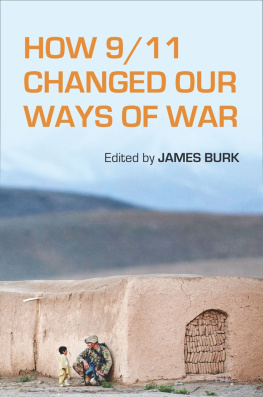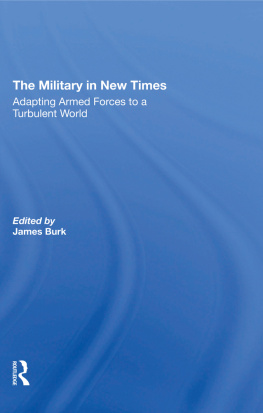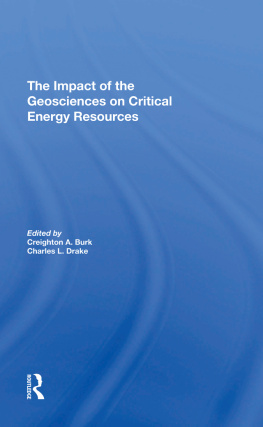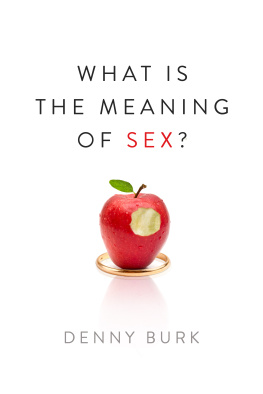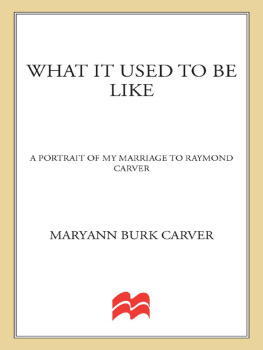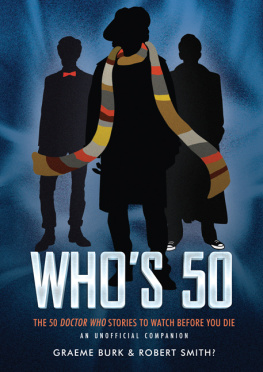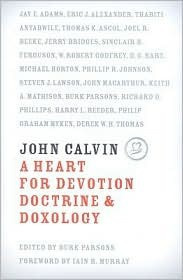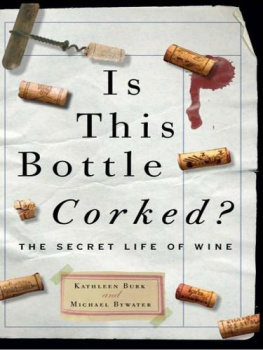Stanford University Press
Stanford, California
2013 by the Board of Trustees of the Leland Stanford Junior University. All rights reserved.
No part of this book may be reproduced or transmitted in any form or by any means, electronic or mechanical, including photocopying and recording, or in any information storage or retrieval system without the prior written permission of Stanford University Press.
Printed in the United States of America on acid-free, archival-quality paper
Library of Congress Cataloging-in-Publication Data
How 9/11 changed our ways of war / edited by James Burk.
pages cm
Includes bibliographical references and index.
ISBN 978-0-8047-8659-1 (cloth : alk. paper) ISBN 978-0-8047-8846-5 (pbk. : alk. paper)
1. United StatesMilitary policy. 2. Military art and scienceUnited States. 3. North Atlantic Treaty Organization. 4. Military art and science. 5. September 11 Terrorist Attacks, 2001Influence. I. Burk, James, editor of compilation.
UA23.H5675 2013
355.033573dc23
2013010529
ISBN 978-0-8047-8852-6 (electronic)
Special discounts for bulk quantities of Stanford Security Studies are available to corporations, professional associations, and other organizations. For details and discount information, contact the special sales department of Stanford University Press. Tel: (650) 736-1782, Fax: (650) 736-1784
Typeset by Newgen in 10/14 Minion
HOW 9/11 CHANGED OUR WAYS OF WAR
Edited by James Burk
Stanford Security Studies
An Imprint of Stanford University Press
Stanford, California
Contents
James Burk
Andrew J. Bacevich
Stephen Biddle and Peter D. Feaver
Ronald R. Krebs
Joseph Soeters
Christopher Dandeker
James Burk
Gerhard Kmmel
Deborah Avant
Pascal Vennesson
James Burk and Christopher Dandeker
Acknowledgments
MANY THANKS ARE DUE TO THE INTER-UNIVERSITY SEMINAR for Armed Forces and Society, known colloquially as the IUS. Under the strong leadership of John Allen Williams and Robert Vitas, the IUS encourages interdisciplinary and international scholarly and policy-relevant research on civil military relations and related topics. Without their unwavering moral and material support, this project would never have got off the ground.
We are especially grateful to Teresa J. Lawson and to the anonymous reviewers of this volume, who carefully read the manuscript from beginning to end, and to Michael Desch, Antony King, and Suzanne Nielson, for reading and commenting on substantial portions of the manuscript. Their gifts of time and good counsel we cannot repay. But they will see what a positive contribution they made when they read the final text. Other readers will benefit from their comments too, though they will not know just how much. I cannot leave unmentioned the patience and unfailingly helpful insights offered by Geoffrey Burn, whom we were fortunate to have as our editor. He taught me a great deal about the craft of scholarship and the making of a good book.
I want also to acknowledge and thank the College of Liberal Art at Texas A&M University for its material support for this project, made possible through its generous Cornerstone Faculty Fellowship program.
Finally, we thank SIPRI for its permission to reproduce tables and figures originally available on its website and also to thank Bonn International Center for Conversion (BICC) for its permission to include here its original data on the Global Militarization Index.
Contributors
Deborah Avant is the Si Chou-Kang Chair for International Security and Diplomacy and Director of the Si Chou-Kang Center for International Security and Diplomacy at the Josef Korbel School of International Studies, University of Denver. She studies civil-military relations, military change, and the politics of controlling violence.
Andrew J. Bacevich is Professor of History and International Relations at Boston University. His most recent book is Washington Rules: Americas Path to Permanent War.
Stephen Biddle is Professor of Political and International Affairs in the Elliott School of International Affairs, George Washington University. He is also an Adjunct Senior Fellow for Defense Policy at the Council on Foreign Relations. He studies military strategy and the basis in social science research for current defense policies.
James Burk is a Professor of Sociology and Cornerstone Faculty Fellow in the College of Liberal Arts at Texas A&M University. He is a past editor of the journal Armed Forces & Society. He studies issues related to war and morality in democratic societies.
Christopher Dandeker is Professor of Military Sociology in the Department of War Studies, Kings College London. He is Co-Director of the Kings Centre x Contributors for Military Health Research (KCMHR), an Academician of the Social Sciences of the UK, and a Fellow of Kings College London.
Peter D. Feaver is a Professor of Political Science and Public Policy at Duke University and Director of the Triangle Institute for Security Studies and Duke Program on American Grand Strategy.
Ronald R. Krebs is Associate Professor of Political Science at the University of Minnesota and author of Fighting for Rights: Military Service and the Politics of Citizenship. He is currently studying public narratives and national security policy.
Gerhard Kmmel is Senior Researcher at the Bundeswehr Institute of Social Sciences (SOWI) and President of the Research Committee 01: Armed Forces & Conflict Resolution within the International Sociological Association. He is also a Lecturer in the Masters Program in Military Studies at the University of Potsdam.
Joseph Soeters holds the chair of management and organization studies at the Netherlands Defense Academy. He is also a Professor of Organizational Sociology at Tilburg University. His work includes comparative studies of organizational and military culture, multinational military cooperation, and national styles in military operations.
Pascal Vennesson is Professor at the S. Rajaratnam School of International Studies, Nanyang Technological University. He studies military power and grand strategy in world politics. He is finishing his new book, War in the Global Village: Transnational Challenges and the Struggle for Freedom of Action.
Introduction
James Burk
AL QAEDAS ATTACK AGAINST THE UNITED STATES ON September 11, 2001, was a matter of choice. There was no apparent necessity for al Qaeda to attack innocent civilians on such a scale within U.S. borders. By this attack, al Qaeda chose to escalate sharply a conflict that it had already declared was a war against the West. Once the attack was carried out, a war against al Qaeda by the United States and its liberal democratic allies was next to inevitable. But what kind of war would it be, how would it be fought, for how long, and what would it cost in lives and money? None of that was known. The impending war would not be a conventional interstate conflict fought in the familiar interstate way. The rules of interstate war, never perfectly followed, would be hard to apply in a war against terror. Some said that the old rules did not apply and were better done without. The gloves were off. The old ways of war had to change. But what did that mean? Now more than ten years later, we should be able to ask and answer (at least in part) the question: How did 9/11 change our ways of war?

